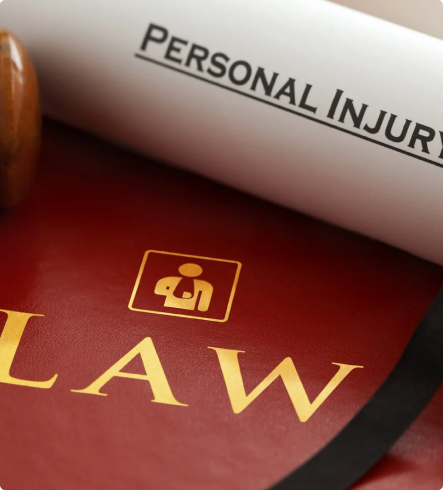Personal Injury FAQs
If you have been injured because of someone else’s negligence, you may be entitled to hold the negligent party responsible and recover damages for your injuries. Below are quick answers to the most frequently asked questions.
Home » Personal Injury FAQs
The Lanier Law Firm handles the following types of personal injury claims:
What are the 12 questions you need to ask before hiring a personal injury lawyer?
A contingency fee arrangement eliminates needing a personal injury victim to pay upfront fees. It also provides the law firm with an incentive to win your case. You only pay if you win.
This also levels the playing field. The insurance company can afford expensive lawyers. With a contingency fee arrangement, injury victims can hire the same caliber of lawyers otherwise only available to large companies.
The cost of litigation entails more than attorney fees. It also involves filing, expert witness, data retrieval, and administrative costs. Some law firms require these fees upfront, while others bill you for them after the case is over.
At The Lanier Law Firm, we take on the risk for you, investing our resources, not yours. When you retain a law firm like ours, you only pay these fees if you win.
Law firms that settle all their cases may not be confident in their ability to win in court. They may accept lower settlements. If they have not built a reputation for being hard to beat at trial, they will only be offered low settlements.
The ideal answer is that your case will not go to trial, but it might. The best personal injury law firms prepare all their cases as if they are going to trial while working hard to settle the case outside of court.
This is important because taking a case to court requires strong litigation skills. Many personal injury lawyers have impressive negotiation skills that are effective for obtaining settlements but lack the skills necessary to win in court.
It is common for large firms to outsource their work or refer the hard cases to another law firm. You may meet with a high-profile lawyer for your initial consultation only to find that the lawyer you spoke with has no further involvement with your case.
This is a sales tactic. It is reasonable to ask for an opportunity to speak with the attorney handling your case.
A well-established, qualified personal injury firm should have a significant number of testimonials and recognition by peers that can be accessed online, as well as references you can call.
A long time in business points to more experience and greater access to resources. It takes time to build a network of forensic experts, medical experts, strong support staff, and specialized in-house attorneys.
Personal injury cases can take a few months to more than a year to resolve. You need a law firm that will maintain regular contact with you to provide case updates. The best firms will provide you with a point of contact within the firm who will answer or return your calls when you have questions and concerns.
You will need to know the law firm’s expectations of you upfront:
- Will you need to attend court?
- Will you have to travel?
- Will the attorneys come to you if you cannot get to them?
- Will a deposition be required?
- What documentation will you have to provide?
No law firm can tell you upfront how much your case is worth, but how the firm answers this question could reveal significant information. A law firm that promises a large sum upfront is either dishonest or inexperienced. A firm that answers with a low sum may be unwilling to fight for maximized compensation.
It is reasonable for the law firm to offer a range, provide examples of cases it has settled, or simply say that they do not know without looking into the particulars of your case. The law firm’s case results are an important barometer of what it can do for you.
Every case is unique, and there is truly no such thing as a slam dunk in personal injury law. Most personal injury cases are a dispute between an injured individual and an insurance company, and these large companies are adept at throwing a wrench into nearly any case.
A good personal injury law firm will acknowledge the challenges while also discussing how it intends to overcome them, perhaps by providing examples of how they have overcome similar challenges in other cases.
Navigate This Page
What are the 12 questions you need to ask before hiring a personal injury lawyer?
Should I hire a personal injury lawyer or handle my own claim?
What is the role of a personal injury lawyer in a case?
What are the eight biggest mistakes made after a car accident?
What is the five-step process of a personal injury auto accident case?
What are punitive damages in a personal injury case?
How are punitive damages determined?
What should I know about seeking medical treatment for a work-related injury?
Should I hire a personal injury lawyer or handle my own claim?
Handling a personal injury case without an attorney places you at a strong disadvantage. You will be up against an insurance company with vast experience, and even with this experience, the insurance company keeps expensive attorneys on retainer.
These companies are delighted when injured individuals are unrepresented because they can use manipulation, scare tactics, legal maneuvering, and even deception to minimize compensation and, in some cases, eliminate it.
One of the most common tactics insurance companies use against unrepresented claimants is the early lowball settlement offer. The insurance company will offer a sum that seems large but is usually far less than the amount you need to pay your medical bills, much less your lost wages and other damages.
They may offer this through a friendly adjuster who expresses concern for your best interests. This is an intentional tactic to persuade you to let your guard down and say more than you should. No matter what they say, adjusters are working for the insurance company, not for you.
The adjuster will document every word you say, and if you fail to accept the initial lowball offer, the company’s lawyers will receive copies of this documentation, and your words will be used against you. The lawyers may convince you they are doing you a favor by offering any settlement and persuade you to sign your rights away.
To resist these attorneys and negotiate a fair and reasonable settlement, you will need the following:
- Knowledge of medical terminology
- The ability to retrieve and review medical records
- Legal knowledge
- Access to life care planners, forensic analysts, and medical witnesses
You can be certain that the insurance company and its attorneys have these resources. You need an advocate on your side who can match their abilities.
What is the role of a personal injury lawyer in a case?
The purpose of a personal injury attorney is to provide representation, advocacy, and legal advice that serve your best interests. This is accomplished by fulfilling the following responsibilities:
- Thoroughly investigating the incident to determine who is liable
- Retrieving and reviewing medical records
- Interviewing witnesses
- Consulting medical experts and life care planners
- Calculating damages
- Negotiating a settlement
- Taking your case to court, when necessary

What are the eight biggest mistakes made after a car accident?
- Admitting fault to the other party, the insurance company, or the other party’s legal counsel
- Speaking to the opposing party’s insurance company without an attorney present
- Discussing the incident or your case on social media
- Failing to collect the names and contact information of eyewitnesses
- Failing to document the accident with pictures and/or a written account of what occurred
- Failing to seek medical treatment immediately
- Failing to follow your doctor’s advice and/or complete treatment
- Waiting too long to contact an attorney

What is the five-step process of a
personal injury auto accident case?
Regardless of when you contact an attorney, your vehicle accident case begins the instant the accident occurs.
 The Accident Aftermath
The Accident Aftermath
Your immediate medical needs will determine how much you can accomplish at the scene, but to the fullest extent possible or as soon as possible, the following should be completed:
- Exchange insurance information with the opposing party.
- Collect the names and contact information of any witnesses that are present.
- Take photos and video footage of the accident, or ask a bystander to do it for you.
- Continue with medical treatment to demonstrate the necessity of such treatment for your case.
- File an accident report as required by your state and local laws.
- Contact an automobile accident attorney as soon as possible.
Your personal injury attorney will investigate your accident to determine who is liable and review your medical records to determine your case value.
 Insurance Negotiations
Insurance Negotiations
You should notify your insurance company and the opposing party’s insurance company as soon as possible after the accident and advise that your attorney will be in touch.
In most states, negotiations will be with the other party’s liability insurance. If you live in a no-fault state like New York, your insurance company pays for your economic damages, including medical expenses and lost wages. If your injuries are catastrophic, you can claim additional damages from the other party’s insurance.
When seeking damages against the opposing party’s insurance, you can also seek non-economic damages, such as pain, suffering, disfigurement, and loss of enjoyment of life. If the insurance company agrees to a fair and reasonable amount, your case is completed without the necessity of a lawsuit.
 Case Filing
Case Filing
If your insurance company fails to pay a fair and reasonable amount on your claim, or if your attorney identifies other liable parties, your attorney will file a lawsuit. This lets the insurance company know that your case could go to court and may boost settlement negotiations.
 Discovery and Motions
Discovery and Motions
After your case is filed, the opposing parties will request the forensic and medical evidence that will be used against them in a potential trial. You may have to undergo a deposition during this phase. The opposing party will also likely file motions to dismiss the case and discredit expert witnesses.
 Settlement or Trial
Settlement or Trial
Settlement negotiations will continue until the liable parties offer reasonable settlements or it becomes clear that they will not take responsibility. A judge or jury will issue a verdict if the case goes to trial. If the verdict is in your favor, the judge or jury will decide the amount awarded.
What are punitive damages in a personal injury case?
Punitive damages are rarely awarded. Unlike other damages that are awarded to compensate the victim, punitive damages are awarded to punish and deter the defendant when the defendant’s injurious conduct was any of the following:
- Deliberate
- Flagrantly reckless
- Fraudulently concealed
- Oppressive
Punitive damages are often awarded in cases of impaired driving.
How are punitive damages determined?
Every jurisdiction calculates punitive damages differently. They are often calculated based on the following:
- The income of the liable party
- The net worth of the liable party
- The egregiousness of the conduct
- The compensatory damages awarded
- Statutory limitations on punitive damages
What should I know about seeking medical treatment for a work-related injury?
If you are injured at work, you may be entitled to file a workers’ compensation claim. To qualify, your employer must have purchased workers’ compensation insurance, and you must meet your state’s definition of an employee. All W-2 employees and many 1099 contractors fall into this category.
If you qualify for workers’ compensation benefits, you are entitled to partial wage replacement and free medical care for the injuries. Workers’ compensation also pays death benefits. Workers’ compensation does not provide non-economic damages.
The advantages of workers’ compensation are that workers can generally expect to receive compensation faster than in a personal injury lawsuit, and it is unnecessary to prove that your employer was negligent. The primary disadvantage is that covered workers cannot sue their employers.
However, you may be eligible to sue other parties that caused or contributed to your injuries, such as product manufacturers, vehicle drivers, or premises owners. In these cases, you will have to prove that a product was defective or lacked adequate warnings, or that the liable party was negligent.


Do all personal injury claims go to court?
Approximately 95 percent of civil claims settle outside of court. It is usually in the client’s best interests to settle rather than endure the rigors and uncertainties of a trial. At The Lanier Law Firm, we do everything possible to settle personal injury claims outside of court.
When a defendant refuses to offer a reasonable settlement, we will generally advise you to take your case to trial rather than settle for an amount less than you deserve. Most defendants offer our clients generous settlements because they do not wish to fight The Lanier Law Firm in court.
By submitting this form, you agree to our terms & conditions. Please read the full disclaimer


 The Accident Aftermath
The Accident Aftermath Insurance Negotiations
Insurance Negotiations Case Filing
Case Filing Discovery and Motions
Discovery and Motions Settlement or Trial
Settlement or Trial
